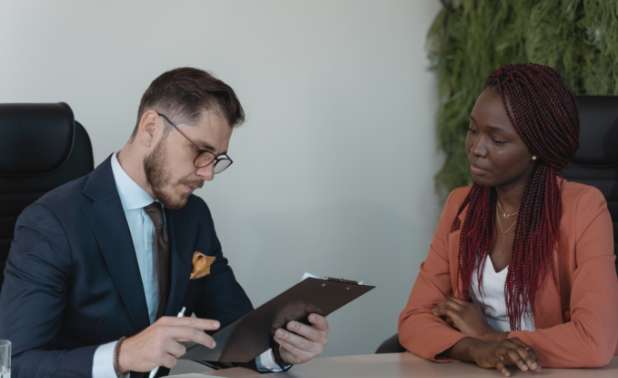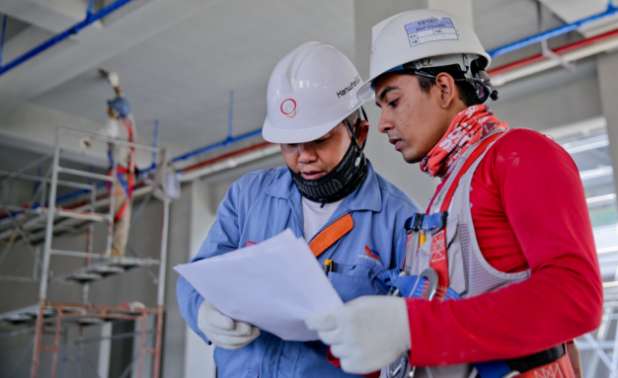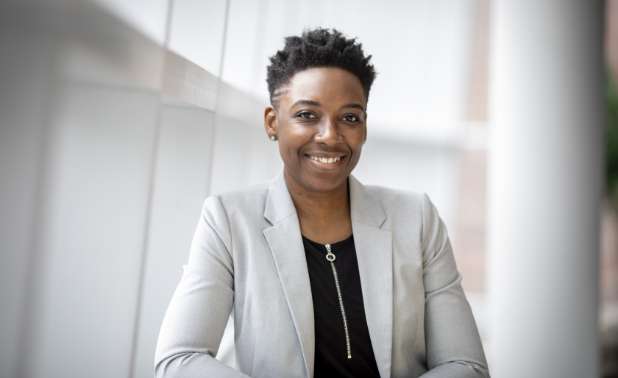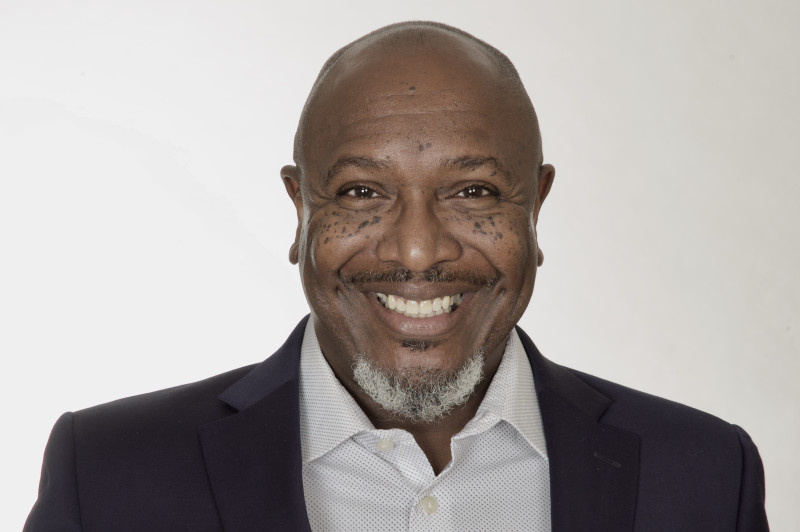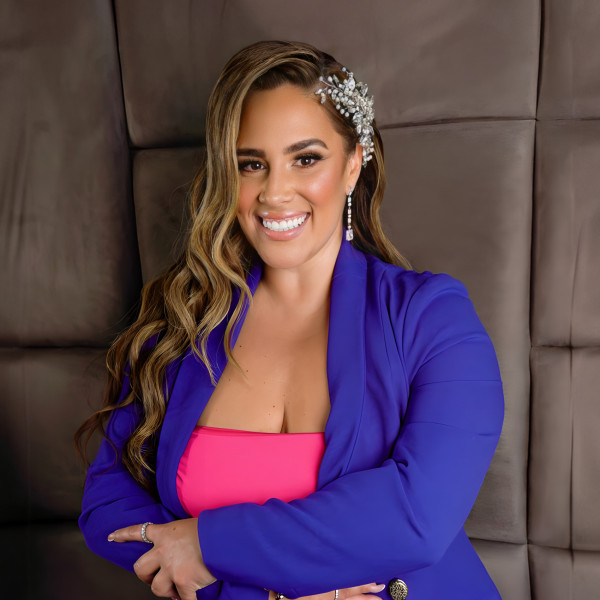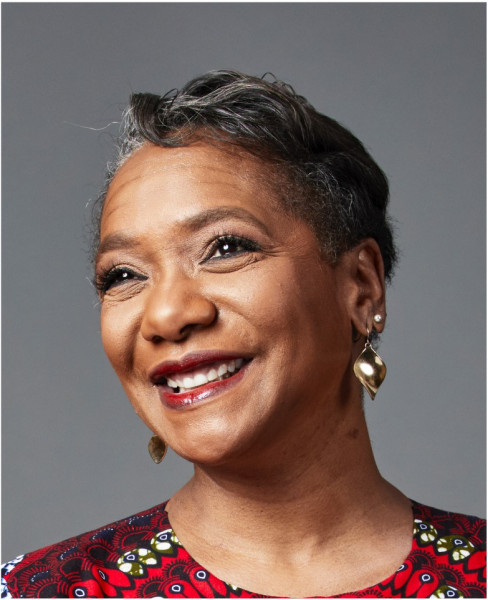Kamela Forbes:
Welcome to But First People, a podcast brought to you by Pride Global. I’m your host Kamela Forbes,
the global head of diversity, equity and inclusion here at Pride Global. Along with my colleagues on
this podcast we’ll dive into everything from diversity, equity and inclusion to service and staffing in the
human capital industry, and so much more. Join us as we sit down with industry experts to hear their
stories.
Hello, and thank you for joining us on the first of many episodes of, But First People. Today we are very
excited to kick off the podcast with our very first guest, our fearless leader, Leo Russell, the CEO and
co-founder of Pride Global, co-founder of Russell Tobin, and managing partner of several operating
subsidiaries under the Pride Global umbrella. Leo oversees all initiatives and operations at our offices
in the US, Canada, India, and the UK for clients all around the world. The Pride Global network of
companies now includes Pride One, Russell Tobin, Pride BPO, Pride Health, Pride Now, Pride Advisory,
Pride Tech, Pride India, and Rocket Shippers. And in recognition of all this work, in 2021 Leo was
named to the staffing industry analysts, annual staffing, 100 list honoring the most influential industry
leaders. Let’s learn more from Leo and get our conversation started. Welcome Leo, and thanks for
joining.
Leo Russell:
Thank you for having me. Appreciate it.
Kamela Forbes:
Great. So one of the things I noticed is that you started this tradition at Pride where every new
employee joins the firm has to sing at the Monday morning, all hands meeting in front of the entire
organization. What is the purpose for you of this singing icebreaker?
Leo Russell:
First of all, I’d be lying to you if I told you it isn’t fun. It is fun to have people sing, puts them in a
moment, a brief moment of awkwardness and to see how people react to that. But the real reason is
we are in a people business. And if you don’t feel good enough about yourself and confident enough
to be able to belt out 15 seconds of one of your favorite tunes, to us it’s an early indicator that you
might not be a good fit in our firm, because we’re a very open family type environment. And even
though you’re new at our table we expect you to understand that and act and feel the comfort of a
family member.
Kamela Forbes:
All right. It’s like when you dance, dance like nobody’s watching.
Leo Russell:
Yeah, exactly.
Kamela Forbes:
It’s that kind of element. And we know, being in the staffing business too, you’re in the people
business. So it’s about being able to be relatable. And I think that’s one of the really good things
[crosstalk].
Leo Russell:
That’s exactly it. Some people take themselves too seriously. And one of the early indicators is if they
somehow find themselves too embarrassed or too scared or too uptight to sing in front of an
audience.
Kamela Forbes:
And that probably means you’re not going to be successful in this people business, right?
Leo Russell:
I don’t know if it’s a scientific correlation, but it’s our tradition and we’re sticking with it.
Kamela Forbes:
All right. Well, I got to tell you, I am sure there are many Pride’s employees who are cringing when they
found out they had to sing. And I’m sure many of them, including me, have never heard you sing.
Leo Russell:
Would you like me to sing?
Kamela Forbes:
Absolutely. I’m sure there are lots of us that are waiting to hear you sing.
Leo Russell:
I have a large repertoire, so it’s Simon and Garfunkel song and it goes, hello darkness, my old friend,
I’ve come to talk with you again, while a vision softly creeping left it seeds while I was sleeping, and
the vision that it planted in my brain still remains within the sound of silence. That’s it.
Kamela Forbes:
Wow. There you go. Wow. Well, you know what? You don’t even necessarily have to keep your day job. I
thought that was pretty good. Yeah. Well, we have so much to talk about today, but first people.
Leo Russell:
Yes.
Kamela Forbes:
You’re in the business. What was your journey to getting into this business? And what was your
interest in starting a human capital business?
Leo Russell:
Well, I’ve had several jobs. My first job out of college was an internship and a two year stint at Citibank.
So I got to see a lot of things. And I quit and started a computer hardware business. And that went
really well. I sold it in 1997, and then I had a couple of other fun jobs. One of them was running venture
capital at Lehman Brothers. And on the venture capital side, you get to see a number of very exciting
new businesses, new technologies, many of which are going to fail, but some of which are going to
succeed. And after two years at Lehman Brothers, I had had enough, I truly enjoy owning my own
business. I sat down with my board of directors, which means my wife and several other people. And
we decided what would be one of the happiest businesses I could be in to spend the rest of my
career? And helping people find work in America, in my opinion, is as good as it gets. Helping people
reap the fruit of their labor in one of the most productive, most wonderful companies on the planet is
a very fulfilling work. Nobody makes me get up out of bed to come to work every day. I love it. And
yeah, as we were talking earlier before we started the podcast, helping people reap the fruit of their
labor is one of the only jobs I can think of where everyone is happy. The employee is happy. The
employer is happy. The tax man is happy. The fishmonger and grocery stores are happy. everyone is
happy. And I ask a challenge I pose in interviews to young people is name a happier business, pick one
other business in America where every single, even our competitors celebrate our success
sometimes? We work hand in glove with many of our competitors, some of our biggest opportunities
we share with them, because humans are not fungible and finding a unique human being does not
take food off of somebody else’s table.
Kamela Forbes:
Oh, that’s amazing. I see that the journey of the human capital business is definitely shifting and it’s
shifting to put more of a focus on diversity, equity and inclusion, and you have recently made some
really pointed moves to make a strategic focus at pride global when DE&I , for example, you hired a
global head of diversity equity and inclusion, yours truly.
Leo Russell:
She’s amazing.
Kamela Forbes:
I think I agree with you on that one. And you also launched a comprehensive diversity, equity and
inclusion initiative across all your business units, but before we get into really what that means, can
you tell us what was the catalyst behind these forward thinking D&I investments that you’ve made?
Leo Russell:
Well, we, as a business, have focused on diversity and inclusion for 35 years. We’re one of the oldest
certified minority suppliers in the state of New York and the city of New York, we’re one of the largest,
it’s always been a part of our message, but in the middle of last year with the George Floyd incident, it
really touched me and I get emotional sometimes.
Kamela Forbes:
Can’t help, but not you’re calling that [crosstalk].
Leo Russell:
But if you actually heard the man’s voice, you heard him beg for his life within the sounds of silence.
There were people surrounding him, the police officer with his knee on his neck could hear him begging for his life and it fell on deaf ears. And that really marked me. So, we decided as a business that we weren’t doing enough, that we needed to double down on that bet and do a much better job so that we hear those voices. And I’m sure that voice has been, those words have been spoken millions and millions of times, and they have fallen on deaf ears. And at my ripe old age, I guess I decided to listen more carefully. And we, as a business will listen more carefully.
Kamela Forbes:
I think that’s so impactful. A lot of people had the same thing and it seemed like it could be a moment, but I’m really glad and I’m proud and honored to work for a company that has such a focus on this and is doing so much to really move the needle in this space. Can you go ahead then and tell us, tell our listeners a little bit more about your comprehensive diversity, equity, inclusion initiative called Decidedly Diverse.
Leo Russell:
Well, we decided to... We have a humble, but relatively complicated business that I’m very proud of. We have 20 different things we’re doing at any given time. We’re in several different countries. What we decided to do is take a step back, look at every single thing we do. And the fancy word I throw at people is imbue it, to saturate it with a focus on diversity, equity and inclusion. So look at every one of our business practices, how we hire people, how we compensate them, how we train them, the markets that we serve, every aspect of our business, and with fresh eyes, look at how we could improve it from a diversity, equity and inclusion perspective.
Kamela Forbes:
Actually, let’s take a step back here. Can you actually tell us Pride Global, there are several different businesses within the Pride Global family. Can you tell us a little bit about each one of them?
Leo Russell:
Yes. Within the Pride Global family, you have PrideOne which focuses on vendor management and payroll solutions for medium to large clients. We have a large staffing arm called Russell Tobin. I’m Russell. Mr. Tobin does all the hard work for which I take credit. We have a healthcare division. We have an advisory group that does business process outsourcing. We have clients in four different countries around the world. So we have a number of businesses. And within each of those, we’ve got different flavors and nuances. Right now one of our biggest businesses is identifying recruiters and then dedicating them to a specific client. We call those embedded solutions. We’re going to come up with a craftier marketing name, but that’s what it’s called today. Another part of our businesses are for our recruiting for recruiters. Some of our clients have such a voracious appetite for talent that they need their own very large bench of recruiters. So we help them find recruiters. So we have a number of businesses, which means we have a tremendous opportunity to focus on diversity, equity, and inclusion.
Kamela Forbes:
That’s great. So when you look decidedly diverse, how do you see that playing across all of those business units?
Leo Russell:
Well, first we looked at it from an internal perspective. How can we motivate the people who show up here to work every day and get them to focus on it? So we are making it a part of their compensation structure. Unique, I think to the industry only because I haven’t heard of anybody else doing what we do. We measure work performance independently of cultural growth and fit. So, as we say it here, and this is Jack Welsh, came up, was the first time I was exposed to this concept was with Jack Welsh and his leadership at GE where he met measured productivity and cultural compatibility on several axis, and then decided how to compensate people and how to promote them within his construct. Ours is a little different. I put the chopping of wood, as I say, or the work product on the X axis. And we measure cultural fit on the Y axis.
Leo Russell:
So we measure them differently. In fact, I spend more of my time evaluating people on the Y axis on their cultural fit than I do on the X axis. We have other people who focus on that. So because we wanted to make this a part of everybody’s path to success within this firm, we elevated a role within diversity, equity and inclusion as a must have. You must contribute in some fashion on the Y axis for you to enjoy any bonus, or promotion. We have many other areas that where you can make progress along the Y axis, but the one mandatory requirement is having a role in diversity, equity, inclusion. So that forced everybody at the atomic level of our business to think about their role and what they might do to further the mission, to further the goal.
Kamela Forbes:
I think that’s really important. I know we have heard about a lot of companies that make, just put out these statements about their commitment to diversity, equity and inclusion. You might see it on a website, but when you really look under the hood, what’s really being done, how are we holding our employees accountable to anything? And I think that’s really what’s missing. So I like that you have this X and Y axis, and you’re actually evaluating cultural contributions, as well as your actual work performance. What would you say you think that as a leader, we know that you should model this behavior from top down. What would you say that you do as a leader to influence your employees to be as committed as they are to DE&I
Leo Russell:
Thank you for classifying me as a leader. What I try to do is I try to be very clear. I try not to obfuscate the message. Some people enjoy that, sometimes it’s a little rough. I, as I think you know now, I am a ready, fire, aim kind of guy. When I have an idea and I think it’s a good one, or I see somebody else who has an idea I want to get there as quickly as I can to execute it, unless somebody else beat me to the opportunity. So I drive very hard. I try to be clear. I try to set objects. I try to be fair. And with Y axis it gets a little hard to do that. And the chopping of wood, it’s easy to measure job performance in most, I can tell how big the pile of wood is and how much you were given whether... But on the Y axis, how do you tell whether somebody is consistently honest or intrinsically motivated or has an interest in investing in those or around them?
Leo Russell:
So that’s where my job gets a little more subtle and I rely heavily on a group of people. We call them the OGP. Those are the orange belts, the green belts and the purple belts. And I’ll talk about that in a little bit, to create the gestalt, the system around which we establish the goals, gauge progress, move people up the curve so that they can enjoy cultural Y axis growth.
Kamela Forbes:
Well, actually, let’s dive [crosstalk].
Leo Russell:
Did that answer your question?
Kamela Forbes:
Absolutely.
Leo Russell:
Okay.
Kamela Forbes:
Let’s dive into that. I know when I was getting ready to start here, I heard a lot about coming in as a white belt. I also had heard that you’re Brazilian and martial arts influenced a lot of like the culture around us. So tell us a little bit about the belt levels and what that means and what it takes for somebody to progress through different belt levels.
Leo Russell:
Well, I grew up in Brazil and martial arts is very popular in Brazil as is soccer. Now, of course, as a modern nation, we have many, many sports that are popular. When I was a kid, it was either soccer or martial arts. And I pursued martial arts aggressively. And about 10 years ago, I was riding home with Tim Tobin on a train. We were talking about how are we going to measure something that is independent of titular advancement, directors, managing directors, senior directors, all the... We wanted to come up with a construct that would measure progress. And it dawned on us that the belt construct might lend itself to that. So what happens when you come into a dojo, which is a center of learning for martial arts and for other things in Japan tea services, and a number of other things are taught in dojos, you come in as a white belt. And what that means is we have no idea what skills you might or might not have because you’re new to the family. You’re new to the group. So your white belt is a clean belt. After an interval, a period of time, and depends on the dojo that you’re in that will determine that interval. We then assess where a given person might be. Now, just so you know as a sidebar. And if I digress, you can drag me back.
Kamela Forbes:
That’s my job.
Leo Russell:
But what happened in a dojo at the turn of the last century when these dojos became popular was you get a clean uniform, a gi, and you get a belt. And over the 10 or 15 years that it takes you to achieve expertise in your given field, the belt gets dirty because of repeated usage and washings and those kinds of things. So over time, it gradually progresses from white the day you walked in to black, when you’ve become an expert at what you’re... And that’s the history of the progression in martial arts from white to black. Now with the invention of modern dyes, what they did is they decided to make it a little more formulaic. So in judo, it goes white, blue, yellow. So those are the early stages of progress here in the company. And then orange, green, purple, brown. Those are the later stages. So if you’re an OGP in our company, you’re orange, green, or purple, you’re considered the senior cultural management of the company. And as a collective, you are expected to create and maintain the construct.
Kamela Forbes:
That’s great. And it’s so important, you talk about the cultural leaders and we know the culture is so important in so many aspects of diversity in terms of retention of great talent. Can you tell us a little bit, I know you’ve broken down decidedly diverse into three pillars. Tell us about those three pillars and maybe more about the cultural pillar.
Leo Russell:
Well, I swiped the three pillar construct. So, the cultural pillars affects all of them. We have workforce, humans that we hire and that we also put to work on behalf of our clients. We have the workplace. So what is the environment they work in? Is it a safe environment? Is it one that nurtures cultural growth? Is it legal? And the other’s marketplace? What are our commercial offerings? How do we compete out there in a marketplace where this is becoming more and more relevant? So those are the three pillars that we’ve divided up. Cultural progress affects all of them, from what our websites look like. What is the first phone call like? What are the questions that we ask you? How did we find you? Are we searching for you in a way that includes a broad swath of humanity? So it affects each of the three pillars.
Kamela Forbes:
Now I know personally, I have joined the Lioness, women’s equity initiative here at Pride since I have joined. And I know you’re very involved in that, which is really great. Can you tell us a little bit about why that’s important to you and where you see that Lioness program going in the future?
Leo Russell:
Yeah. And again, kick me forward if I digress too, but I was born in America. My father died when I was seven on a week within my seventh birthday, and my mother who was an undocumented alien, or they’re now calling it something else, but she was a Brazilian national who had moved here with my father and we were left alone. And she raised us. We had a journey through America’s welfare state, both at the state and the federal level. We lived in 13 different federally funded homes. And finally the government invited us all to leave and to make a long story short, my mother did come back. She got her college degree because I was born here. I was able to help her become an American citizen. And she lived her final days here in the United States. And I watched a woman with three kids, and she was 24 years old, I think, when she had three kids and my biological father passed away. To watch her keep us together and build a life, not only for herself, but for us, was amazing, was astonishing. So in our business, I see an enormous opportunity to do the same, maybe less dramatic, but to enable both men and women, and women in this particular case to your question have been historically prejudiced in our business. They’ve been paid less I think forever, but certainly throughout my lifetime, they’ve been given less opportunity and so to compensate for that, at least within our own business and hopefully outside of our business, we formed a group called the Lioness group. And their focus is to identify both obstacles and opportunities that disproportionately face women. For example, in our society, women still bear the brunt of the obligation to raise their children and rear their children. So still in America to this day, and that’s changing gradually over time, but most children are still raised by their mothers. So we looked at our business, how can we adapt to that? How can we accommodate that? Even benefit from it. So we introduced through the Lioness program, what’s called Pride in Balance, and that’s a program that’s not dedicated only to women, but it does disproportionately affect women. It allows them to work from home some period of time. It can be full-time, it can be part-time. It also allows them to work part-time so they don’t have to work five days a week. A fully 50% of our company take advantage of Pride in Balance. Both men and women, but it’s, I would guess this is probably 80/90% women, and many of them are taking care of their children, or their commutes would just make it impossible for them to effectively manage the other priorities in their lives.
Kamela Forbes:
Great. And under, in addition to the Pride in Balance, under the Lioness Women’s Equity Initiative, I know there’s also the Motherhood affinity Group. Can you speak to some of the accomplishments of that affinity group, or specifically as it relates to how they were able to impact the maternity leave and that pride offers?
Leo Russell:
Well, yes. First, let me back up one step. The Lioness group is by far the most accomplished initiative we’ve ever had. I am an initiative engine. I’m always coming to work with some new, I’ve read some new article, I’ve come up some idea. I heard somebody mention something on the subway, and I’m all always coming to all, and two thirds of them die on the vine, they wither away, because they just, the Lioness group is the one that I think I am most proud of. What you’re asking about is we had a four week maternity leave program, paid maternity leave program, which is very competitive in the industry and actually double what is the US average, believe it or not.
Kamela Forbes:
Wow.
Leo Russell:
Yeah. Well, an enormous number of people work on an hourly basis, or off the books and they have no maternity leave program whatsoever, which skews the averages, but even within our industry, as best we could tell, and there’s nobody who, to my knowledge who keeps accurate statistics. So we had to wing it a little bit. One month was very competitive, but was it enough? And the Lioness group and it was not an easy battle, had to come back to me and others and say, you know what? It makes economic sense as well as cultural sense to be generous in that regard. And we looked at it very carefully and more than half of my workforce are females, it’s contemplation, it wasn’t immaterial. It would have a financial impact, but they made me realize, and they were right, that the financial impact would be positive, that it would be a positive return on investment, we would be in a position to better attract women and keep them if we made that program more generous.
Leo Russell:
So we moved it from one month to three months of paid leave and so far so good. It’s been an amazing investment. So I thank the Lioness group, one of many of their accomplishments, and that’s a big one. And I know a lot of mothers who have taken advantage of it, thank them as well.
Kamela Forbes:
And I think that’s what’s so important. We talk about right now we’re in the great resignation and being able to have programs like that, initiatives like that is definitely something that’s going to make you competitive in that war for talent.
Leo Russell:
I hope so. I don’t know how well we advertise it out there in the marketplace, to be honest with you, but our new head of marketing Kaltrina will help us do a better job of that as will you, I hope
Kamela Forbes:
... like change. Absolutely. And as we also will be branching out to not only the women’s equity initiatives, but several other ERGs and other initiatives as well, so [crosstalk].
Leo Russell:
100%.
Kamela Forbes:
... a lot more coming down the pipeline. But I guess as we get ready to wrap up here, I’d love to know women, you seem very passionate about helping women in the workforce, but are there any other dimensions of diversity that you feel more compelled to helping? And if so, why?
Leo Russell:
So growing up, a Latino or Latinx, I think it’s now called to make it gender neutral, I got to... So yes, is the answer to your question. People of color, people who might have grown up, or been born into difficult situations as I have, I see as an enormous opportunity to help, I think it makes a ton of commercial sense. One of the biggest things that pops into my brain every time we have this discussion is New York City, for example, has one 1.2 million children in its school, public school system, 80% of whom are of color, an enormous number of them live in very difficult situations, some at or below the line of poverty. And very few of them, I think it’s close to only 10% ever get to go on to continued education, either a two year or four year college. About the same number get incarcerated by the time they’re 21 years of age.
Kamela Forbes:
Absolutely.
Leo Russell:
That’s just crazy. In one of the, if not the richest city on the planet earth, after 5,000 years of written language, we are still only sending 10% of our kids to college who might want to go. It’s nuts. So one of our, not-for-profit’s Pride and Education, our 501(c)(3) that allows us to focus on that. Think of the opportunity we have as a country if we figure out how to release the cracking in the sense that we educate and unleash the millions of children we have today, who can contribute in meaningful economic ways. That right now we fetter, we handicap. They’re unable to do that.
Kamela Forbes:
Well, I love the fact that you talk about Pride and Education, the nonprofit and the work that we’re doing around career readiness and helping to upskill the next level of leaders in our organization. Can you speak a little bit more, I know you’re also dedicated helping minority owned staffing firms. Can you speak a little more about the Diversified Staffing Alliance?
Leo Russell:
Well, yes, I’ve been in this business a long time and we got, even though I did my stints at Lehman Brothers and alike. I continually had a business that focused on technology, used to be hardware solutions and then became labor based solutions. And the reason I tell you that story is I was very lucky to work with accounts that are the who’s who in America, some of the largest financial institutions, some of the largest neweconomy.com companies, an amazing number of companies in the Midwest that focus on your old fashioned blocking and tackling. But I also now realize that if you are trying to do what I did, start your business from your apartment, it’s basically impossible for you to contemplate getting into some of these big Wall Street firms. They don’t have the appetite for the risk. You probably can’t afford the insurance and some of the other restrictions. So in brainstorming with people, I don’t know, seven, eight years ago, what we decided to do is to create a trade association called the Diversified Staffing Alliance, which would allow those small firms to become a part of. And then as a collective, they could approach larger accounts. And because it is our 501(c)(6), by default they’re covered under my insurance blanket, my defense and indemnification agreements, all of the trappings of our now larger business inure to them, they can take advantage of them. So the obstacle that they would face from a risk perspective, a capital perspective, and in a financial perspective, are somewhat mitigated if not obviated entirely so that they have a chance to do business with some of the biggest money setter banks. And I’m being discreet in the usage of their names, but we do business with some of the largest, most successful financial institutions in the world. And I know they want to do business with small to medium size firms, but the risk of work profile is such that they can’t.
Kamela Forbes:
Yeah. And you say that also, which brings up last point I want to focus on in terms of the marketplace pillar, which is our supply, our newly supplier diversity program. Can you share a little bit about, I thought it was really important for diverse supplier, helping diverse suppliers. And so can you share a little bit about the catalyst behind implementing a supply diversity program?
Leo Russell:
At the end of the day we don’t buy a lot of things. My number one expense is payroll salaries. My number two expense is rent. And after that, everything is relatively small. So one of our clients, I’ll say it, shamed us into it, said okay, you’ve been at my doorstep as a diverse supplier. What are you doing in turn for the people who supply you? And we said, ah, shucks, caught us. So in the last couple years, and I thanked them for that.
Kamela Forbes:
Absolutely.
Leo Russell:
We’ve focused on that even as far as, and this is where it remains to be seen whether there will be successful, rent, remember I said, rent is one of the basic expenses. The vast majority of landlords are very large companies if not publicly traded companies like the one here in New York City, SL Green is a publicly traded company, but even the privately held ones are generally not minority owned. Well, we’re looking at that creatively. We recently hired a gentleman, Alex Wong, whose only job is to help us find real estate solutions that would take advantage of the economic development zones, or I think they’re now calling them opportunity zones, where there might be minority owners or minority content. Today I took a phone call from our outside council who is himself, is a man of color focused on this presenting to us an opportunity where we could work with a group of minorities to build out one of these economic development zones and make mixed out of the space, including warehouse vocational training, which I’d love to talk about in a little bit and our business. So we are looking creatively at our number one, and we’re making progress in some of the smaller expense areas that we have.
Kamela Forbes:
Well, then let’s go ahead. I would love to know, tell us a little bit more then about the vocational training that you-.
Leo Russell:
Well, the Venn diagram of what I do and what I’d like to do come together if we can teach people how to better reap the fruit of their labor. I’m in the business of identifying humans for jobs. I have a philanthropic interest in Pride in Education, in teaching young people how to contribute at a higher level in our economy. So if you think about that, what’s great way to do that would be to give them the skills, to teach them, whether or not they’ve had an opportunity to go to a two year or four year college, teach them how to be a phlebotomist, or how to drive a forklift, or how to do material handling, which we used to call in my day pick, pack, and ship for working in a warehouse. And Amazon, one of our clients, was in the newspaper yesterday announcing their massive before year end hiring effort. Well, I think it’s a 125,000 people from now till year end. And they’re already one of the largest employers. Well, those people don’t grow on trees. You got to find them and help them learn what are the skills necessary for an Amazon, or a Wayfair, or some other account to hire you to do that. Those are things we can do. And those are things I also believe we could get our clients to help us with. Whether it’s space, skills tools. One of our biggest clients on the West Coast has an extraordinary training program. And they’ve given us access to that so that we can train young people coming into the marketplace, both for them and for others leveraging their training infrastructure. And at the end of the day, if one of these companies builds a multimillion dollar training platform, the marginal cost of letting me bring 10 new people or 22 people to the table is zero. And the benefit is enormous. So we thought about that and we’re in this year, in the next year, we’re going to invest in and dedicate more resources towards vocational training. And we’re going to identify those jobs that we feel are going to have greater success.
Kamela Forbes:
Well, that’s amazing. I’m super excited to hear about all these different initiatives from the culture building, the employee resource groups, from the things that you’re doing in the marketplace through the nonprofit Pride in Education with career, development training, vocational training, supply diversity, giving back to the community, it definitely is commendable all of the D&I initiatives that Pride is embarking on. And so with that, I’d like to wrap up here saying, I know you always joke with us at the firm, that we’re going to have to wheel your body out of the office one day, because you love what you do and you don’t intend to retire anytime soon.
Leo Russell:
That’s correct.
Kamela Forbes:
But when it’s all said and done, what do you want your legacy to be?
Leo Russell:
My goal, and I said this, I announced this in a speech ages ago, is I want to leave as many happy people behind me as possible. What I mean by that is people who make their own choices, who reap the fruit of their labor, who vote the way they want to vote, who marry how they want to marry, who have the rights and choices that I think we all deserve. I want to help that and leave as many of those people behind as possible. I do. And I think honestly, given the platform and the opportunity that I have, it can be tens of thousands of people. I really do
Kamela Forbes:
Leo, very inspiring. Thank you so much for joining us today.
Leo Russell:
Thank you very much. Thanks for having me.
Kamela Forbes:
Thank you for your focus on people.
Leo Russell:
All right. Thank you,
Kamela Forbes:
Leo. Thank you so much for joining us for this very first podcast episode. I truly enjoyed having you as my guest, and I’m sure our listeners really appreciated all the insight and information that you gave about Pride Global and the subsidiaries. I’d also like to say thank you to you, our listeners, because without you, there is no, But First, People. So thank you for some time with us. To learn more about Pride Global, please check us out at the website, prideglobal.com. And, of course, if you have any questions for Leo or myself, feel free to tweet us at Pride Global with the hashtag, ButFirstPeople, or you can email us at, ButFirstPeople@prideglobal.com. And, of course, don’t forget to like, share, rate and subscribe to the podcast. Thanks again. And we hope you’ll tune in again real soon.


